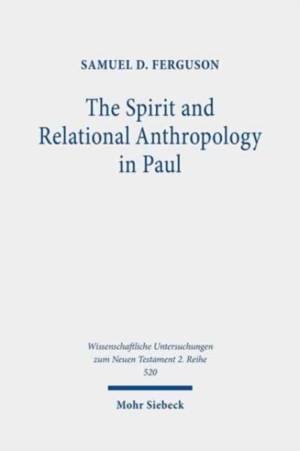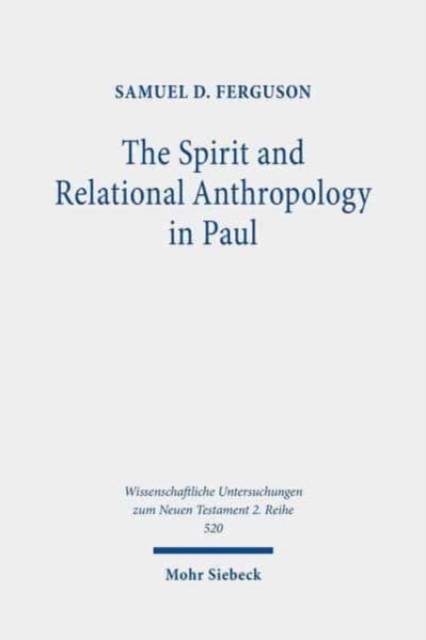
- Afhalen na 1 uur in een winkel met voorraad
- Gratis thuislevering in België vanaf € 30
- Ruim aanbod met 7 miljoen producten
- Afhalen na 1 uur in een winkel met voorraad
- Gratis thuislevering in België vanaf € 30
- Ruim aanbod met 7 miljoen producten
Zoeken
Omschrijving
Paul's anthropological assumptions influence the rest of his thought, and in this study, Samuel D. Ferguson follows a growing interest in the corporate, non-autonomous nature of his doctrine of humanity. In a further departure from strictly individualistic interpretations, the author explores the bounded and relational aspects of Paul's anthropology. An array of "relations" ranging from those with the Creator, world, cosmic forces, other persons, and Christ, are shown as impacting human agency, identity, and volition, evidencing what this study terms "Relational Anthropology." The work of the Spirit further demonstrates this phenomenon, as texts from Romans 8 and First Corinthians 12 witness to Spirit-wrought relationships that actualize the new life of a believer, including the Spirit-generated relation of sonship and Spirit-sustained relations of interdependence experienced through shared charismata.
Specificaties
Betrokkenen
- Auteur(s):
- Uitgeverij:
Inhoud
- Aantal bladzijden:
- 314
- Taal:
- Engels
- Reeks:
Eigenschappen
- Productcode (EAN):
- 9783161590764
- Verschijningsdatum:
- 1/08/2020
- Uitvoering:
- Paperback
- Formaat:
- Trade paperback (VS)
- Afmetingen:
- 155 mm x 231 mm
- Gewicht:
- 476 g

Alleen bij Standaard Boekhandel
+ 195 punten op je klantenkaart van Standaard Boekhandel
Beoordelingen
We publiceren alleen reviews die voldoen aan de voorwaarden voor reviews. Bekijk onze voorwaarden voor reviews.








